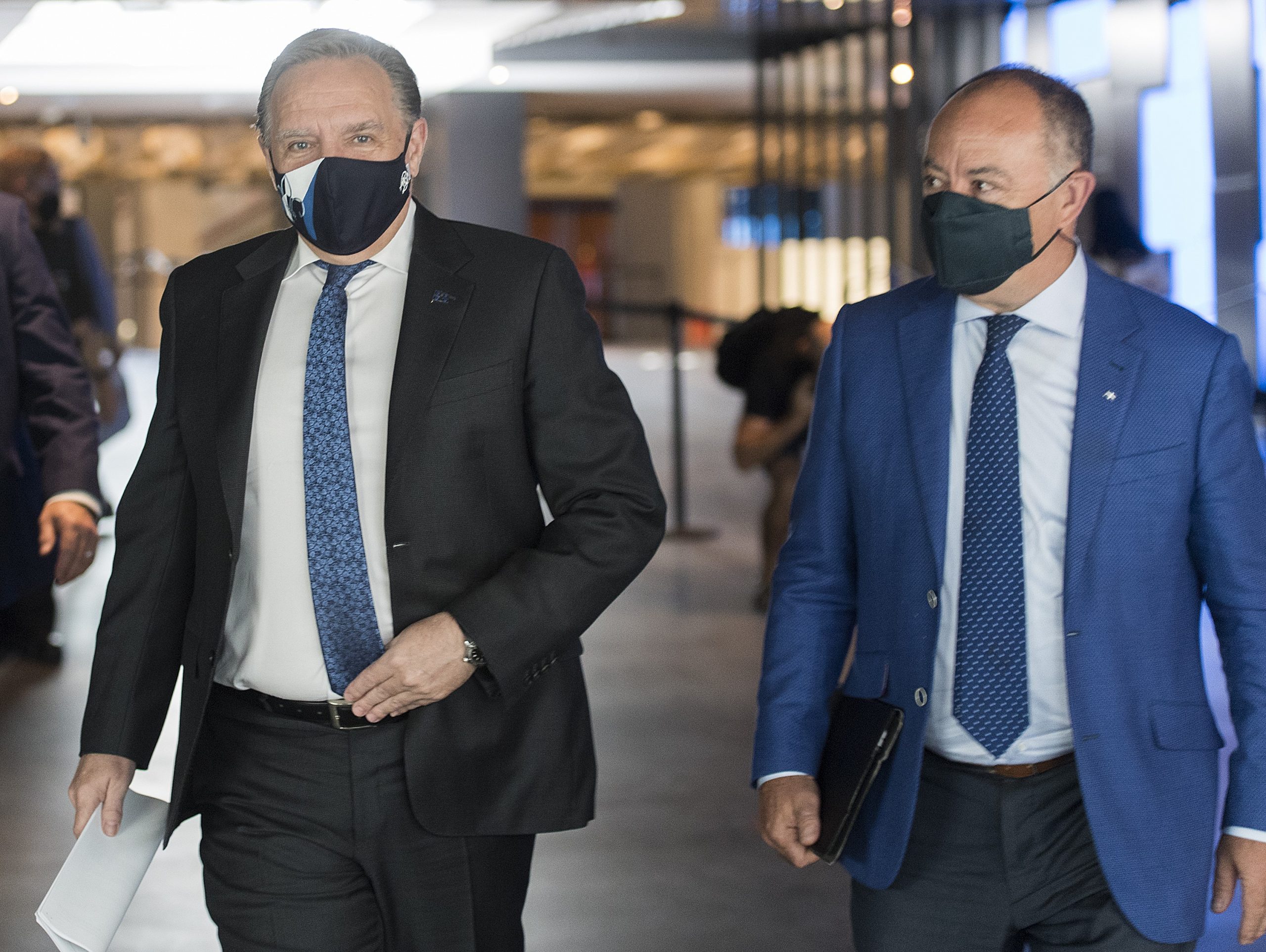Montreal health officials are reporting a rise in the percentage of positive results from COVID-19 testing following their call over the weekend for anyone who visited or worked in a bar since the beginning of July to be tested for the novel coronavirus.
Positive cases are now about three per cent of total testing, when in the past few weeks it was about one per cent, Dr. David Kaiser of Montreal’s regional health authority said Tuesday.
That percentage translates to about 10 to 15 cases per day, Kaiser explained, a relatively low positivity rate compared to the height of the pandemic, when the percentage of positive tests was up to 20 per cent.
“But if it’s sustained and if we don’t feel that we can get on top of where transmission is happening and stop it, that’s what’s more alarming,” Kaiser told reporters.
He said authorities have conducted about 3,000 tests since their call on Saturday for bar patrons and employees to get tested.
Many of the positive cases, Kaiser said, involve people between the ages of 20 and 40, many of whom were asymptomatic or presenting mild symptoms.
Authorities will have a better idea on the kind of community transmission happening in Montreal by the end of the week, Kaiser said.
On Saturday, officials reported eight COVID-19 cases tied to Montreal-area bars. By Tuesday, Kaiser said that number jumped to a minimum of 30 cases connected to nine bars.
“Right now we see an increase,” Kaiser said. “We have ideas of how that’s happening, but that’s why we went out on Saturday and said get tested so that we can try to put those puzzle pieces together.”
Kaiser stressed the goal is to get a handle on the situation, not to shut down drinking establishments or night clubs.
He said bars should set up a client registry to allow public health authorities to quickly conduct contact tracing if an outbreak occurs. A registry, he added, can also serve as a reminder to patrons that the risk of COVID-19 transmission is greater in bars.
Kaiser also pleaded for patience amid complaints of hours-long waits to get tested at the city’s walk-in clinics. Kaiser noted authorities have managed to double testing capacity.
Dr. Horacio Arruda, Quebec’s director of public health, said adjustments will need to be made, adding the same clinics were empty ahead of the weekend call by authorities.
“It’s not chaos, it’s like a sale and a lot of people showed up with coupons,” Arruda said in Trois-Rivieres, Que. “But I’m happy there was a good response.”
Quebec Premier Francois Legault told reporters in St-Jean-sur-Richelieu Tuesday the province can “easily” conduct 16,000 tests per day. The problem right now, he said, is that testing capacity isn’t distributed properly around the province.
“At certain places it’s congested and others there isn’t almost anyone,” he said, referring to testing clinics. “So we have to adjust.”
The premier added that the rise in the percentage of positive cases justifies the calls over the weekend for bar patrons in Montreal to get tested. Recent testing results, he said, “confirms that we were right to make the special call and restrict the rules on bars.”
Last week, the government cut the operating hours and capacity of bars as a way to slow the spread of COVID-19. Legault said the situation in bars remains “under control” but warned he was open to closing them if things change.
Meanwhile, Quebec reported five additional deaths from COVID-19 in the past 24 hours, bringing the province’s total to 5,633. The province also reported another 109 novel coronavirus infections, for a total of 56,730, with 26,025 cases considered recovered.
Hospitalizations continued to decline, with 10 fewer patients being treated for the disease compared with the previous day, for a total of 295.
Among those in hospital, 21 are in intensive care, the same number as Monday. The government said it conducted 9,072 COVID-19 tests July 12, the last day for which data is available.
Legault announced Monday that mask-wearing will be mandatory in all public indoor places beginning Saturday.
This report by The Canadian Press was first published July 14, 2020.
Sidhartha Banerjee, The Canadian Press













